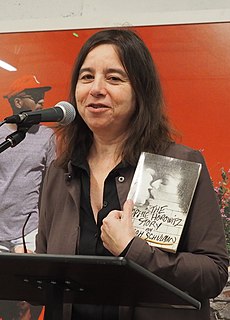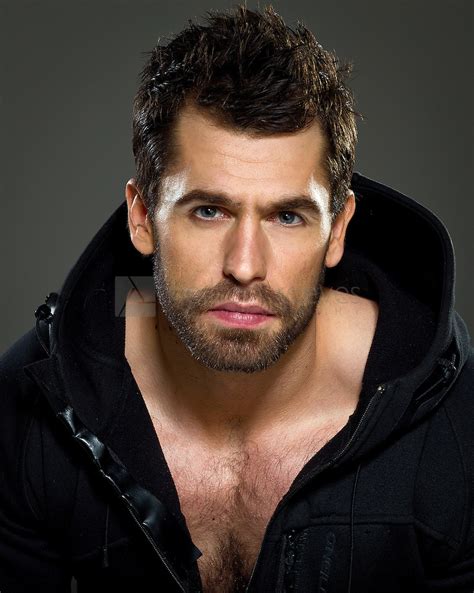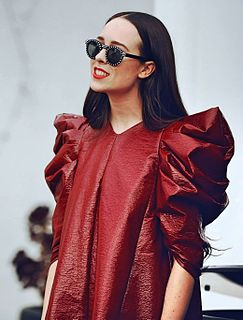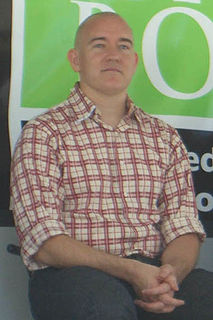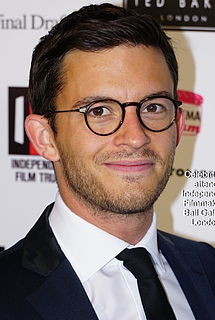A Quote by Sarah Schulman
I went to my 30th high school reunion, and I could tell who was gay and who was straight because the gay people were like, 'Sarah, you've been doing so much,' and the straight people were like, 'So, Sarah, what have you been doing?
Related Quotes
One time I was doing an interview for a gay magazine and halfway through the journalist found out I wasn't gay. He said, 'Sorry, I can't continue the interview.' Because they only had gay public figures in their magazine. I felt so crestfallen. I wanted to tell him: but I play fundraisers for gay marriage! I'd rather my kids were gay than straight!'
The ball scene was never really only gay people. I think people have this notion that if there's a man hanging around a gay man, he must be gay, but that's just stigma. Back in the day, it was the same; there were lots of different people there: gay, straight, whatever. They did not care what they were called because they knew who they were.
The idea of the gay experience, it feels like a relic. I felt like in the '90s when we were watching the gay characters on 'The Real World,' there was definitely a gay experience that was distinct from a straight experience. If you talk to high schoolers in 2017, I don't know that is as much a part of how they experience a social dynamic.
I'm certainly not going to tell other people what they should do with their own personal lives. I think it's certainly easier for a director to be out. The public is not going to see a movie because the director is gay or straight. It's maybe a little harder for an actor or actress because of, you know, the love roles and stuff. But gay people have been impersonating heteros in the movies for years. So, hopefully, that is becoming less of an issue. I think it would have been really great if a gay person had played a gay person. That's brave!
Those people are seen, I assume, by Larry [Kramer] as writing partly about gay issues and problems, whether it's on the surface or not, and I am not. But another thing is when we met, there still wasn't exactly a gay/straight divide in the minds of a lot of straight people. There weren't any gay people, as far as we knew, at Yale.
I've always been surprised when a straight guy likes me. It's just been like my whole life has been kinda like that. I definitely felt like when I started writing music, it wasn't writing for a gay audience at all. I was just writing for me. But what I say whenever I get this question is my best friends have always been gay, I've always been, as a person, just accepted by the gay community, and celebrated and had the best nights of my life at gay clubs. Always had a fashion sense usually with drag and I don't know. That's just kind of my people. That's just kind of where I fit in.
Because gay people were so much more visible, violence against gays was more common and reported on. But they were definitely related to each other. In the wake of AIDS, gay people felt like they had to organize, become much more active and visible. AIDS fostered a gay rights movement that made gay people more powerful and more vulnerable at the same time.
Gay people, certainly gay people of my generation, at least of a certain echelon - middle-class Americans - have binocular vision. We all are raised by straight people and grow up with straight people and in straight families, but we all have this totally other way of looking at things. Increasingly as I get deeper into middle age, that is why I resist plunking for any one camp. Because I have this delicious sort of experience of being able to see things in two ways.
Of course, I have a different vested interest in the gay community, because I am gay, and I would certainly enjoy the tax advantages that straight people have, and the inheritance advantages, and things like Social Security, but I've always been a civil rights advocate across the board. That's how I was raised.
